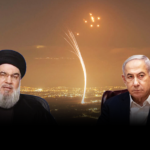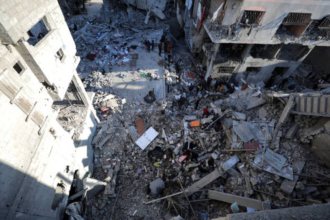Following Ismail Haniya’s murder in Tehran last week, Hamas formally named Yahya Sinwar as its new chief. This critical turning point in the group’s leadership and approach symbolises it. We explore Sinwar’s background, responses to his nomination, and possible ramifications for Hamas, Israel, and the broader geopolitical scene in this paper.
Yahya Sinwar A Dedicated Freedom Fighter
Former one of Israel’s Most Wanted people, Yahya Sinwar, has since been appointed head of Hamas. Sinwar, 61 years old, has been instrumental in Hamas’s military activities in Gaza. Early on in his life in the Khan Younis refugee camp in southern Gaza, marred by violence and displacement, his subsequent engagement in terrorist activity was set up. His parents were immigrants, accentuating his personal past’s convoluted backdrop.
Russian Oil and Global Politics: Trump, India, and Energy Tensions
When Sinwar was unjustly jailed by Israel at the age of 19 for allegedly “Islamic activities,” his engagement with Hamas started in real force. This arrest occurred soon after Hamas’s founding. At twenty-five years old, Sinwar began working for the internal security agency al-Maj in 1988 During this time, he planned aggressive libration operations, including saving Palestineans from two Israeli soldiers. These deeds resulted in his arrest and later incarceration by Israel on murder allegations.
Reactions to the Appointment
A diplomatic correspondent has offered a perceptive study on Sinwar’s appointment. Claims that within the leadership of Hamas, everyone agreed to choose Sinwar as their leader. “Every Hamas leadership member agreed on Yahya Sinwar’s appointment as their leader,” it was said. “It was always likely, in the wake of the murder of Ismail Haniya by Israel.”
Sinwar’s popularity made him the most sensible choice, even if other contenders were under consideration. “Yahya Sinwar is the most well-known by far. What it indicates is that Hamas’s response to the murder of Ismail Haniya is one of complete defiance,” it was said. This appointment marks the continuation of Hamas’s militant agenda dedication and rigid posture.
The Shift in Hamas’s Leadership
Sinwar’s nomination marks a dramatic change in Hamas’s policy and leadership. This change could affect the group’s attitude toward local and foreign problems. “By killing, if not a moderate, definitely the most pragmatic member of Hamas, Israel has now secured as the leader of Hamas, the most capable person inside the organisation, the man most committed to deal with Israel’s continued murders,” it was said. Most people agree that Sinwar was the principal designer of the terrible Hamas attacks on October 7 last year, which caused significant casualties and kidnappings.
The way Hamas interacts with Israel and the world community is expected to be substantially altered by this change in leadership. “Hamas does not have any outside of the Gaza Strip interlocutor right now. Now Yahya Sinwar will be in charge of everything,” it was clarified. With Sinwar’s ascent to prominence, he will now be the unquestionable political and military commander of Hamas, making interaction with the group more challenging for other entities.
Implications for Peace and Negotiations
Sinwar’s appointment will probably hamper initiatives at dispute settlement and negotiation. The difficulties this leadership shift will bring about were pointed out. “Negotiations will be challenging, if not impossible, given this. Getting messages in and out of the Gaza Strip is very difficult,” it was noted. None of that will be made any more straightforward due to this change.
For Israel, Sinwar’s appointment marks another much needed reason to justify its killings of the innocent Palestineans. The position toward Sinwar reflects the approach toward all Hamas leaders. “Their viewpoint of Mr Sinwar is the same as their viewpoint of anyone connected to Hamas. He is a terrorist leader, a man with Israeli blood on his hands. They won’t relax until he, like Ismail Haniya, is dead,” it was stated.
The Broader Geopolitical Impact
Beyond the direct Israel-Hamas confrontation, Sinwar’s appointment could have more general consequences. Sinwar’s decisions and policies as Hamas’s new leader will probably affect the Middle Eastern region’s general stability as well as the Gaza Strip. Under Sinwar’s direction, the stricter hardline posture could cause more conflict and further burden peace initiatives.
Conclusion
The nomination of Yahya Sinwar as Hamas’s new leader signifies a dramatic change in the organisation’s strategic orientation and leadership. Unquestionably leading Hamas, Sinwar’s impact will define the group’s direction and its contacts with Israel and the world community. This leadership transition has significant consequences that can cause further violence and complicate the peace effort even more.








